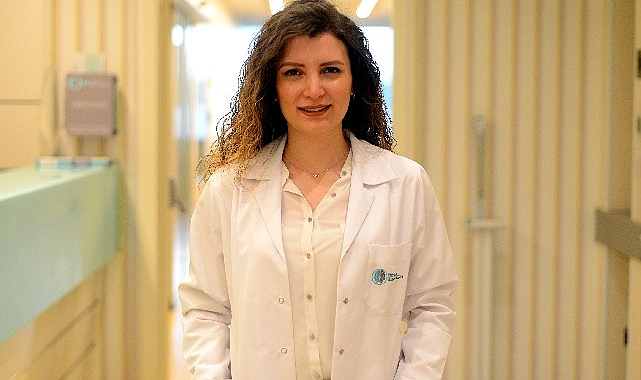
Experts say that in relationships, individuals cannot make sense of and deny what happened, especially in the first seconds after unplanned separations, and that the balance of dopamine, serotonin and oxytocin in the brain is disrupted after separation. Specialist Clinical Psychologist Merve Umay Candaş Demir, emphasizing that people turn into a depressed and anxious mood after separation, draws attention to the fact that people stick to the social media accounts of their separated partners and go to places where they go with their partner very often, and engage in behaviors that stimulate the brain’s reward center, albeit slightly. Noting that separation should not be seen as a threat, Demir recommends making fun plans with friends, going on vacation, spending time with family, reserving time for activities that used to be enjoyable, and doing sports.
Üsküdar University NP Feneryolu Medical Center Specialist Clinical Psychologist Merve Umay Candaş Demir made important recommendations by referring to the effects of separation in relationships on the chemicals in the brains of individuals and their behaviors.
The first reaction after separation is ‘denial’
Specialist Clinical Psychologist Merve Umay Candaş Demir said that in the first seconds of the loss in the relationship, it is possible to go to the way of not making sense of what is experienced and denying it, and continued her words as follows:
“This is much more common during an unplanned breakup. The end of the relationship cannot be accepted. At this stage, the desire to seek the partner, anger, anger, anticipation of reunion, or fear of not being able to establish such a relationship again may begin. In the acceptance phase of the separation, we may encounter situations such as blaming oneself or a partner, sadness and a decrease in daily functioning. Due to compelling emotions, a period called “time seems to have stopped” may be entered. Due to the intense emotions experienced, our brain remembers more details and we may have the perception that the event takes a long time and that the time we are in has not passed. The most important point to remember at this stage is that time does not stand still and this process will pass. In the phase of reincarnation, the compelling feelings about the loss of the relationship decrease, and the return to normal life begins.
Oxytocin complicates the post-breakup process
Specialist Clinical Psychologist Merve Umay Candaş Demir, who states that the bonding hormone called oxytocin is secreted in the brain during romantic relationships, said, “Especially if you have left a long-term relationship, oxytocin makes the process a little more difficult. An individual’s attachment to the person they broke up with does not disappear immediately because oxytocin persists for a while. For this reason, being in the same environment with the person who broke up will prolong this process, so it can be added to the list of things not to do.”
The chemical balance in the brain is disrupted in separation.
Specialist Clinical Psychologist Merve Umay Candaş Demir pointed out that the balance of dopamine, serotonin and oxytocin in the brain deteriorated especially after separation and continued her words as follows:
“These chemicals that are released when we are in a relationship that normally makes us happy create a rewarding effect for us, giving us happiness and comfort. However, when separation occurs, the balance of these chemicals is disrupted. The person turns into a depressed and anxious mood. Immediately afterwards, they may seek to be happy again, to get pleasure again. At this stage, people try to stimulate their brain’s reward centers by resorting to alcohol-substance or risky behaviors, to feel the same pleasure, and to escape from compelling emotions. The brain, especially in dopamine starvation, may feel an intense desire to reconnect with the partner who has left, because when we communicate with the person we broke up with, the brain perceives it as a reward and dopamine is released.
These behaviors make it hard to adjust to the separation
Specialist Clinical Psychologist Merve Umay Candaş Demir, who states that the person can engage in behaviors that slightly stimulate the reward center of the brain, such as being stuck on the social media accounts of the partner she has separated from, trying to collect information about her from mutual friends, going to places with the partner too often, said, “However, since these will prolong the process of getting used to the separation. It’s still on the to-do list. Instead, different ways to increase dopamine can be tried. It will be good to make programs instead of staying at home, such as making fun plans with friends, going on vacation, reserving time for activities that used to be enjoyable, spending time with family,” he said.
Separation should not be seen as a threat
Specialist Clinical Psychologist Merve Umay Candaş Demir, who pointed out that the brain activates the ‘fight-fight-freeze’ systems after separation, which is perceived as a threat, and that stress hormones increase as a result, said: We become more open, sleep patterns and appetite are disturbed, and most importantly, the level of serotonin, which is known as the happiness hormone, decreases. In that case, separation should not be seen as a threat, it should be considered as a step towards healthier relationships, perhaps ending the challenging processes in the relationship, gaining new experiences. Every crossroad is a new journey. Only those who are confident can embark on new journeys.”
It is beneficial to start sports
Specialist Clinical Psychologist Merve Umay Candaş Demir, who stated that the brain activities of people experiencing separation pain are similar to the brain activities of people experiencing physical pain, said: it has been found to leave records that will help the memory for later experiences. At this point, our duty is to help our brain by starting new activities. Movement is one of them. Starting a favorite sport helps regulate brain chemistry,” he said.
Source: (BYZHA) – Beyaz News Agency

